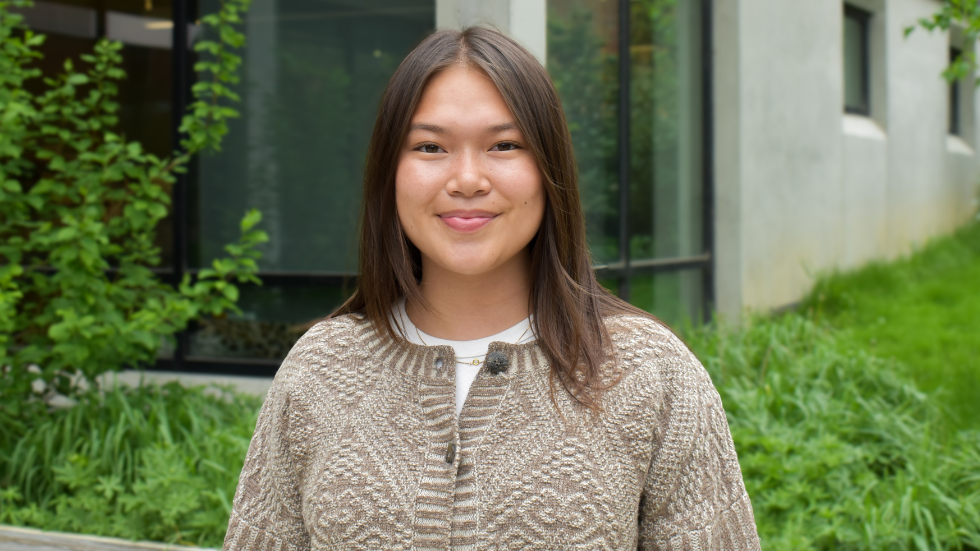Minh Khai Spencer '25 presented a senior thesis that investigated how young women from immigrant-origin, first-generation college backgrounds cared for their families during the pandemic and how those responsibilities shaped their academic choices.
Her project, Closing Up to Care: An Examination of Care and Kinship in Female, Immigrant-Origin, First-Generation College Students' Households During COVID-19, drew from three years of work with the Pandemic Journaling Project and the lives of 55 participants who submitted monthly journals and participated in interviews.
Spencer focused on a particular group within the study: “I looked specifically at students from immigrant families—either they or their parents immigrated—and narrowed in on young women.”
She wanted to understand how these students, already balancing academic and family demands, responded when the pandemic added more weight. “They stepped up,” she said. “They managed their siblings’ schoolwork. They took care of sick relatives. They kept their households running. And they held the emotional weight for everyone.”
Two Forms of Care
Spencer identified two patterns in how students showed care: tethered supporters and independent achievers.
“Tethered supporters stayed close. They were emotionally present, practically involved. They found strength in staying connected to their families,” she said. “Independent achievers supported their families too, but at a distance. They focused on long-term goals like finishing school, so they could help later.”
The contrast, she explained, came down to how care was experienced. “Tethered supporters often saw care as mutual and grounding,” she said. “For independent achievers, it was more fragmented. Still meaningful, but sometimes isolating.”
Spencer’s interest in the topic began with a simple email. “I reached out to Professor Andrea Flores after taking her course on immigrant students my first year at Brown. She replied, ‘I need a research assistant.’ Just like that, I was in.”
As the project evolved, it started to reflect her own life. “My dad immigrated from Vietnam. He actually read my thesis,” she said. “He told me, ‘Home can feel like safety or it can feel heavy. For some students, college can be a real haven and a protective place.’”
Methods and Data Analysis
Though she didn’t design the original study, Spencer engaged closely with its data. “The core of the study was journaling. Students wrote monthly responses to open-ended prompts,” she explained. “We also followed up with interviews to dig deeper.”
All of it happened online, which created new challenges. “We were asking about deeply personal experiences over Zoom. Building trust took time.”
She also faced unexpected hurdles, including AI-generated fake participants who tried to game the system for compensation.
As she worked through the data, Spencer saw how complicated care could be. “It’s not always obvious,” she said. “One student told us she wasn’t caring for anyone, then mentioned she gave 70% of her paycheck to her family. She didn’t call it care, but there was no resentment. She just did it.”
Looking Ahead
Spencer hopes her research helps institutions better understand the invisible labor many students carry. “These students didn’t just face the pandemic. They managed households. They made sacrifices their schools didn’t always see.”
The experience also shifted her own path. “I never thought I’d be interested in higher ed,” she said. “But this project opened that door.”
